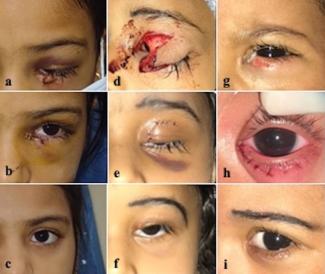Author Insights: Impact of a Plastic Surgery Residency Program's Online Presence and Friendliness
Author Insights: Impact of a Plastic Surgery Residency Program's Online Presence and Friendliness from HMP on Vimeo.
Magnus Chun of the Tulane University School of Medicine discusses the role of video in appraising programs as well as how important the friendliness of a program is compared with its national reputation in this follow-up interview.
Video Transcript
Magnus Chun: My name is Magnus Chun. I'm a medical student at the Tulane University School of Medicine in New Orleans, Louisiana. I'm affiliated with the Department of Plastic Surgery at the Tulane University School of Medicine.
Prompt: Does video appraisal of programs allow for a wider choice?
Magnus: In our study, we saw that more than 40 percent of respondents say that social media outreach, including Instagram, Twitter, any type of social media, was important in choosing a residency program. Ever since COVID hit, a lot of plastic surgery residency programs across the United States have increased their presence on social media.
Whether or not they feel that's important is something to be further studied. That's something that we discussed in this paper. Specifically, the video side of the things, I definitely feel it's important for both the programs to show what their program is about and to show all the different aspects and niches of how the program is set up.
It's also important for the respondents to see this because now they get a feel or what it's like to be a resident there as well as what it's like to be there, living in the city and living in the environment for the next six years in their plastic surgery residency training, without having to fly there or visit the city.
In the near future and even now, video appraisals of programs can give a wider choice of both specialties and residency programs.
Prompt: How important is the friendliness of a program compared with its national reputation?
Magnus: Both friendliness and national reputation is important, as we've studied in our paper. However, if we had to choose one over the other, respondents felt that the friendliness of the program was more important than the national reputation.
This is an interesting finding because a lot of respondents, a lot of students, might think that the national reputation of the program is important. They want to go to a program that they can train at and know that they'll be adequately trained to be a future physician.
As a side note—you're looking at Figure 3 in our paper—we did see that 100 percent of the respondents felt that friendliness or reported happiness was important for them. 80 percent of them said that national reputation was influential. Both of them are very important, but the friendliness was a little bit more important.
A lot of reasons as to why this might be happening. In the past 5, 10 years or so, a lot of students applying to plastic surgery residency programs looked into physical and mental wellness as being very important criteria in selecting residency programs.
Needless to say, they'll be spending a lot of their time in the hospitals and 6 years of their life in the hospital working with patients and working with the department of...even over the reputation, per se, of the program.
This is important. There has been an uptick in mental wellness and increasing, unfortunately, suicidal rates of physicians, not just in plastic surgery but in all specialties. These students recognize that, and they want to make sure their wellbeing physical wellbeing is properly prioritized in the residency program. So ultimately, the friendliness of the program is more important than the national reputation.














